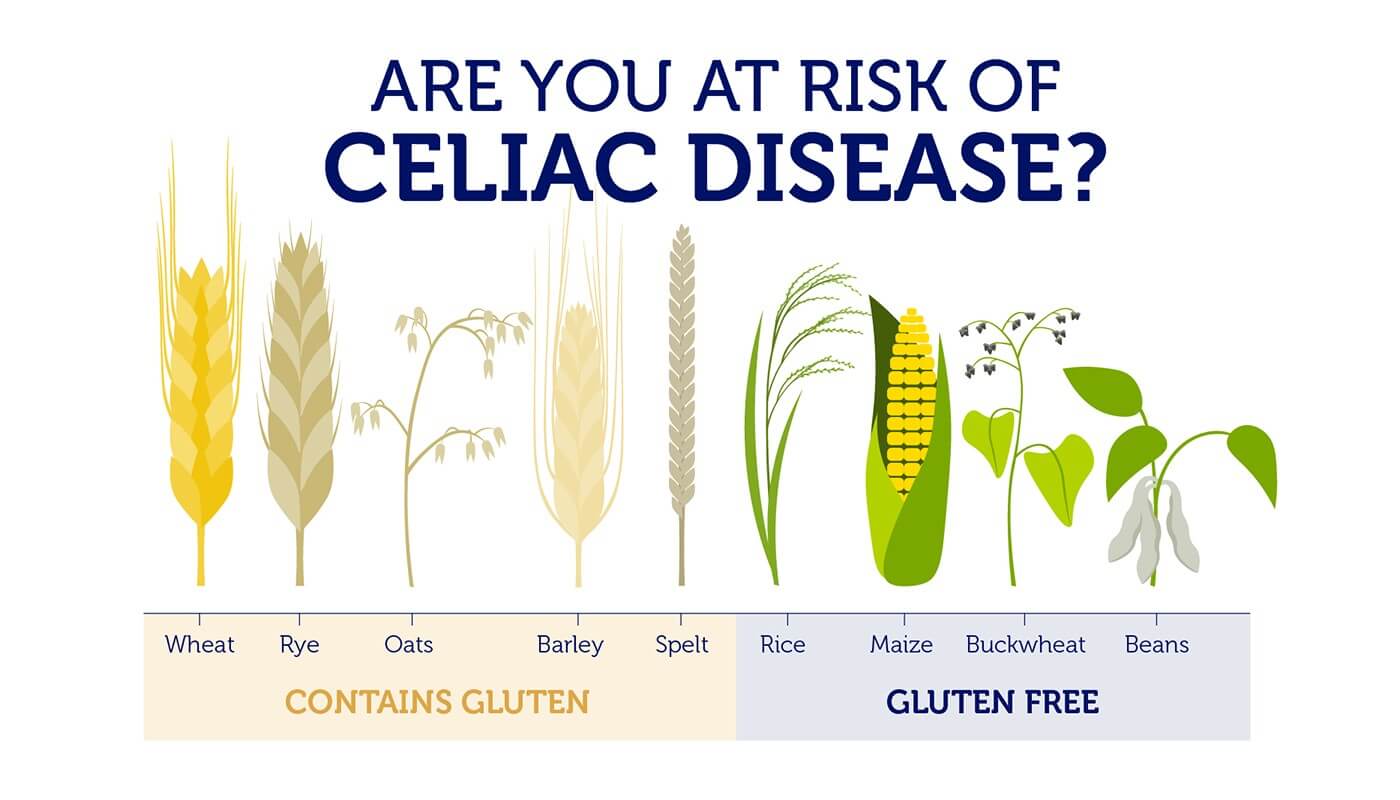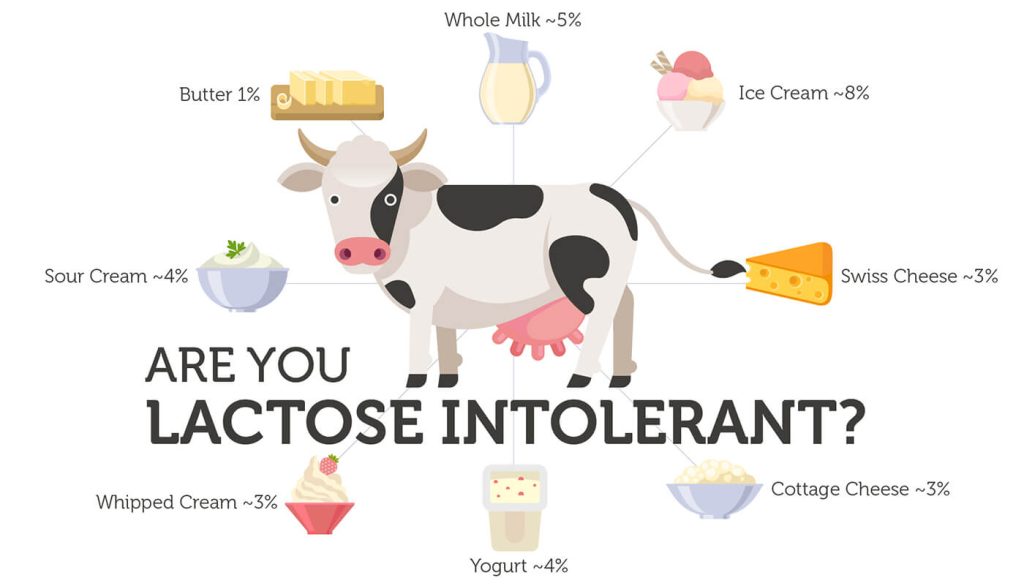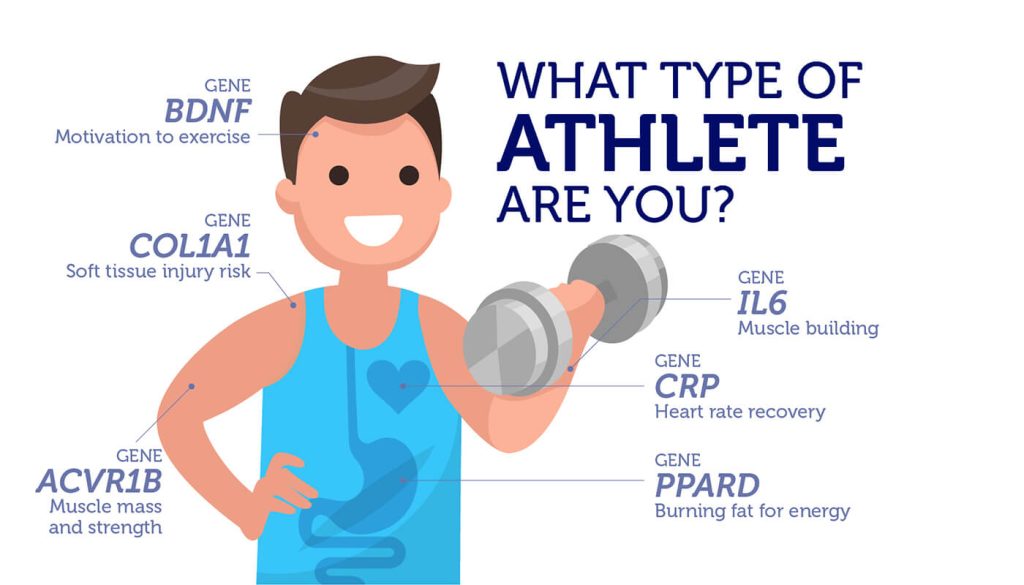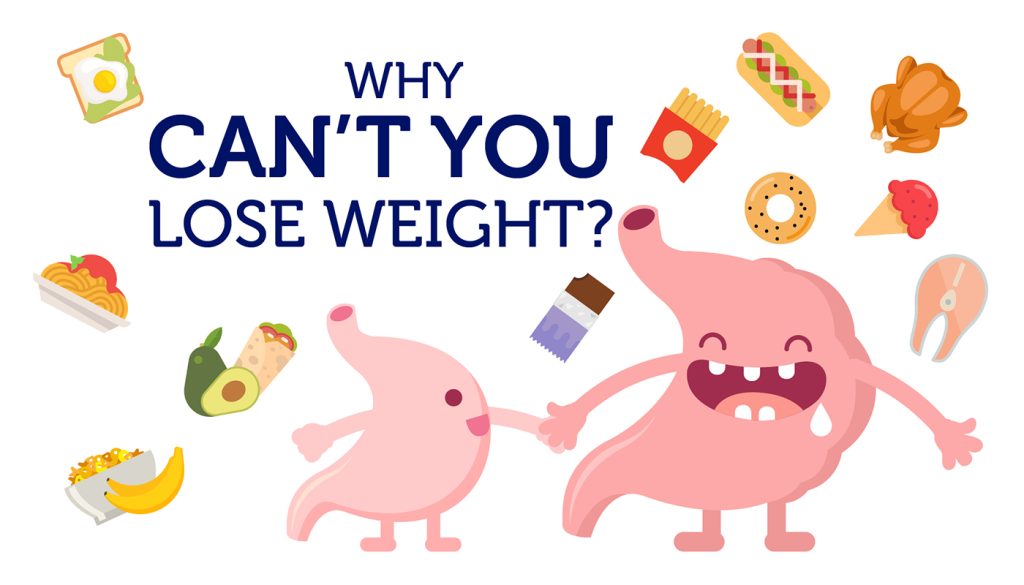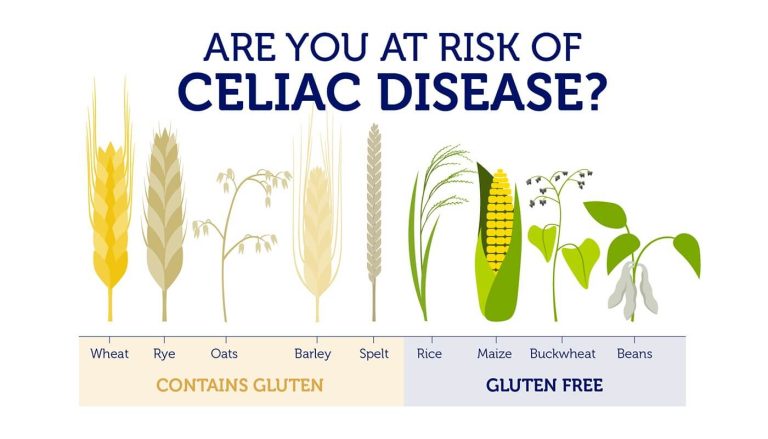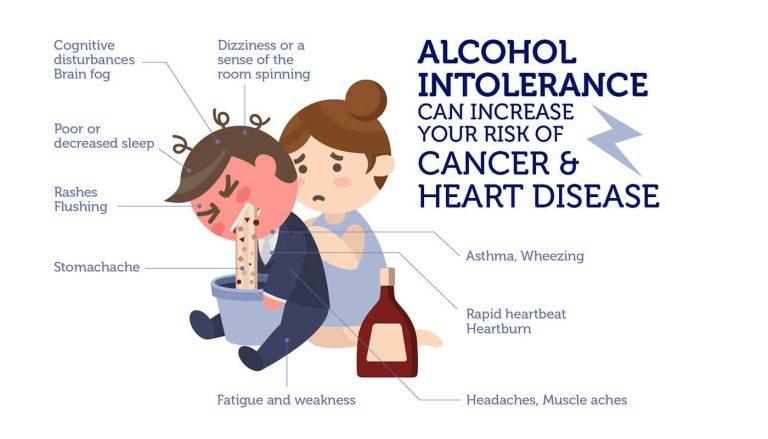From Weight Watchers, to the Atkins diet, to juice cleanses, we live in a society that continuously swings through diet fads. When you walk into any supermarket, it is hard to miss the latest food trend embraced by consumers and the food industry alike – the gluten-free diet.
Gluten and celiac disease
Grains like wheat, rye or barley all have gluten. Gluten is a protein and it gives bread the chewy texture that we all love. But, when gluten signals your immune system to target normal, healthy cells, it leads to celiac disease.
Celiac disease (CD) is an autoimmune disease. It is different from a food allergy, because antibodies, which are involved in an allergic reaction, do not play a role in the autoimmune response associated with CD. Also, symptoms usually develop between 48-72 hours, compared to the immediate reaction seen with food allergies.
The HLA genes
Genetic changes in two immune system genes, HLA-DQA1 and HLA-DQB1 are the main risk factors for CD. HLA genes encode proteins that are normally involved in alerting the immune system against harmful foreign bodies, like viruses and bacteria.
When a person with CD eats anything that contains gluten, the mutated HLA proteins recognize gluten as foreign. This signals special immune cells, called T-cells, to mount an immune response. The inflammation from this abnormal immune response damages the intestinal lining, causing the loss of cells that are essential for nutrient absorption.
Symptoms of celiac disease
Initial signs of CD include digestive problems, like bloating, stomachaches and diarrhea. However, they can often be mistaken for a number of other conditions, including lactose intolerance or Crohn’s disease.
It’s very difficult to diagnose CD solely based on symptoms. Especially since some people with CD develop secondary health problems, without ever having any of the typical digestive symptoms.
Undiagnosed CD is very dangerous. Even small amounts of gluten can cause severe intestinal damage, leading to life-threatening conditions. On top of that, the digestive symptoms can worsen overtime, leading to more severe symptoms like anemia, osteoporosis, infertility, depression and epilepsy.
Be a skeptic
One study lead by an Australian group in 2011 was behind the recent gluten-free movement. These researchers concluded that gluten causes digestive problems, even in people without CD.
Two years later, the same group failed to duplicate these results. Unfortunately, the damage was already done. In Australia, for every person diagnosed with CD, 20 additional people are now following a gluten-free diet.
In the US, retail sales from gluten-free products are predicted to reach 23.9 billion dollars by 2020 – a massive 6-fold increase from the 3.8 billion dollars in 2011.
Is it gluten-free?

Take action
If you suspect gluten sensitivity, you should think about having a proper diagnosis of CD. It is especially important if CD runs in your family.
Genetic changes in HLA-DQA1 and HLA-DQB1 predispose individuals to CD; but only a subset of the people with these genetic changes will actually experience gluten intolerance. As such, in addition to genetics, environmental factors are also involved in the development of CD.
Be safe
Choosing to eliminate gluten from your diet can have drawbacks. Going gluten-free often means you are not consuming enough whole grains.
These healthy dietary components are known to boost heart and metabolic health. Two recent studies have shown a link between gluten-free diets and an increased risk of type 2 diabetes and coronary heart disease.
Are you at risk?
Our DNA Celiac Disease Test will accurately determine if you carry any celiac-associated genetic variants. If you do not carry any of these risk variants, you can essentially rule out celiac disease, and start looking at other dietary components that might be affecting your digestive health.


